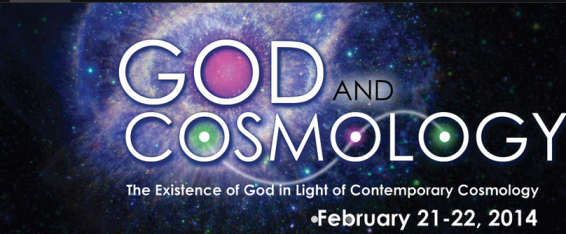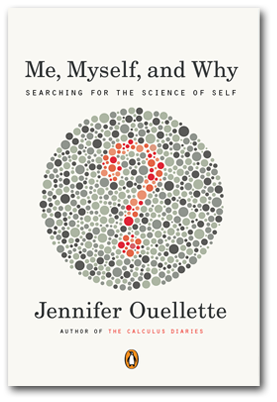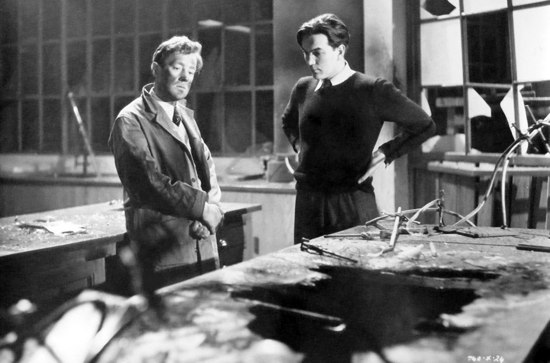“Teleology” is a naughty word in certain circles — largely the circles that I often move in myself, namely physicists or other scientists who know what the word “teleology” means. To wit, it’s the concept of “being directed toward a goal.” In the good old days of Aristotle, our best understanding of the world was teleological from start to finish: acorns existed in order to grow into mighty oak trees; heavy objects wanted to fall and light objects to rise; human beings strove to fulfill their capacity as rational beings. Not everyone agreed, including my buddy Lucretius, but at the time it was a perfectly sensible view of the world.
These days we know better, though the knowledge has been hard-won. The early glimmerings of the notion of conservation of momentum supported the idea that things just kept happening, rather than being directed toward a cause, and this view seemed to find its ultimate embodiment in the clockwork universe of Newtonian mechanics. (In technical terms, time evolution is described by differential equations fixed by initial data, not by future goals.) Darwin showed how the splendid variety of biological life could arise without being in any sense goal-directed or guided — although this obviously remains a bone of contention among religious people, even respectable philosophers. But the dominant paradigm among scientists and philosophers is dysteleological physicalism.
However. Aristotle was a smart cookie, and dismissing him as an outdated relic is always a bad idea. Sure, maybe the underlying laws of nature are dysteleological, but surely there’s some useful sense in which macroscopic real-world systems can be usefully described using teleological language, even if it’s only approximate or limited in scope. (Here’s where I like to paraphrase Scott Derrickson: The universe has purposes. I know this because I am part of the universe, and I have purposes.) It’s okay, I think, to say things like “predators tend to have sharp teeth because it helps them kill and eat prey,” even if we understand that those causes are merely local and contingent, not transcendent. Stephen Asma defends this kind of view in an interesting recent article, although I would like to see more acknowledgement made of the effort required to connect the purposeless, mechanical underpinnings of the world to the purposeful, macroscopic biosphere. Such a connection can be made, but it requires some effort.
Of course loyal readers all know where such a connection comes from: it’s the arrow of time. The underlying laws of physics don’t work in terms of any particular “pull” toward future goals, but the specific trajectory of our actual universe looks very different in the past than in the future. In particular, the past had a low entropy: we can reconcile the directedness of macroscopic time evolution with the indifference of microscopic dynamics by positing some sort of Past Hypothesis (see also). All of the ways in which physical objects behave differently toward the future than toward the past can ultimately be traced to the thermodynamic arrow of time.
Which raises an interesting point that I don’t think is sufficiently appreciated: we now know enough about the real behavior of the physical world to understand that what looks to us like teleological behavior is actually, deep down, not determined by any goals in the future, but fixed by a boundary condition in the past. So while “teleological” might be acceptable as a rough macroscopic descriptor, a more precise characterization would say that we are being pushed from behind, not pulled from ahead.
The question is, what do we call such a way of thinking? Apparently “teleology” is a word never actually used by Aristotle, but invented in the eighteenth century based on the Greek télos, meaning “end.” So perhaps what we want is an equivalent term, with “end” replaced by “beginning.” I know exactly zero ancient Greek, but from what I can glean from the internet there is an obvious choice: arche is the Greek word for beginning or origin. Sadly, “archeology” is already taken to mean something completely different, so we can’t use it.
I therefore tentatively propose the word aphormeology to mean “originating from a condition in the past,” in contrast with teleology, “driven toward a goal in the future.” (Amazingly, a Google search for this word on 3 February 2014 returns precisely zero hits.) Remember — no knowledge of ancient Greek, but apparently aphorme means “a base of operations, a place from which a campaign is launched.” Which is not a terribly bad way of describing the cosmological Past Hypothesis when you think about it. (Better suggestions would be welcome, especially from anyone who actually knows Greek.)
We live in a world where the dynamical laws are fundamentally dysteleological, but our cosmic history is aphormeological, which through the magic of statistical mechanics gives rise to the appearance of teleology in our macroscopic environment. A shame Aristotle and Lucretius aren’t around to appreciate the progress we’ve made.





